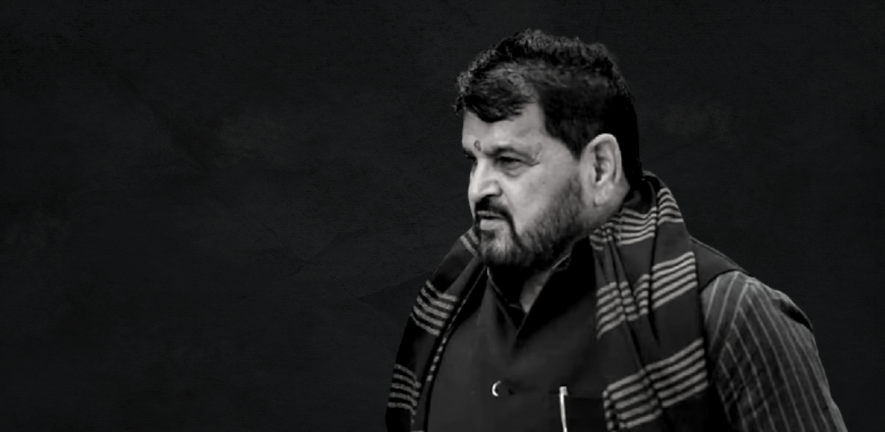Court to Decide on Taking Cognisance of Charges Against WFI Chief: What may it Entail?

The trial against Wrestling Federation of India chief Brij Bhushan Sharan Singh would only commence if the court takes cognisance of the charges against him on July 1.
—
On July 1, 2023, a court in Delhi will decide whether to take cognisance of the charges against Wrestling Federation of India (WFI) president and Bharatiya Janata Party (BJP) member of Parliament (MP) Brij Bhushan Sharan Singh in the case filed against him by six wrestler-complainants.
The case against Singh came up for consideration before additional chief metropolitan magistrate Harjeet Singh Jaspal of the Rouse Avenue Court, Delhi yesterday.
“It is a lengthy charge sheet. It requires time to consider. The matter has been listed for consideration on July 1,” judge Jaspal said.
On June 15, 2023, the Delhi police had filed a chargesheet on the basis of a first information report (FIR) filed against Singh under Sections 354 (assault or criminal force to woman with intent to outrage modesty), 354A (sexual harassment), and 354D (stalking) of the Indian Penal Code, 1860.
Cognisance of an offence by a magistrate implies that the magistrate has applied their mind to the offence alleged in the complaint or police report with a view to undertake further proceedings necessary for the trial of the accused person.
On the second FIR filed against Singh by a minor, the police had also sought cancellation of the charge of aggravated sexual assault in a report filed under Section 173 (report of police officer on completion of investigation) of the Code of Criminal Procedure, 1973 (CrPC).
A decision on whether to revoke the charge under the Protection of Children from Sexual Offences Act, 2012 (POCSO) will be taken on July 4, 2023, by a magistrate.
Taking cognisance
Taking cognisance of an offence merely means ‘to take notice judicially’, and signifies the intention of the magistrate to initiate judicial proceedings. It occurs as soon as a magistrate applies their mind to the suspected commission of an offence for the purpose of proceeding to take further steps towards inquiry and trial.
At the time of taking cognisance, a magistrate is not required to consider the contentions of the accused, evaluate the merits of the material placed before them in detail or pass an extensive Order.
As per Section 190(1) of the CrPC, any magistrate of the first class or of the second class specifically empowered in this behalf by the chief judicial magistrate may take cognisance of an offence:
(a) upon receiving a complaint of facts which constitute such offence;
(b) upon a police report of such facts;
(c) upon information received from any person other than a police officer, or upon their own knowledge, that such offence has been committed.
The expression “police report” has been defined under Section 2(r) of the CrPC to mean, “a report by a police officer to a magistrate under Section 173(2).”
Under Section 173 of the CrPC, as soon as the investigation in a case is complete, the officer in charge of the police station must place a police report before a magistrate empowered to take cognisance of the alleged offence.
The police report contains information on whether any offence appears to have been committed and, if so, by whom; on whether the accused has been arrested and the names of persons who appear to be acquainted with the circumstances of the case, among other things.
If a police report has been placed before the magistrate for their consideration, the magistrate must peruse the said report and any other documents placed before them before issuing an Order to take cognisance, reflecting their application of mind.
Even in a situation where the police report has concluded that sufficient grounds to proceed on a charge do not exist, it is open for the magistrate to take cognisance of that charge.
A magistrate may also decide to examine the diary of proceedings, also known as ‘case diary’, before disclosing their decision on taking cognisance of an offence.
Under Section 172 (diary of proceedings in an investigation) of the CrPC, every police officer conducting an investigation is required to maintain a case diary containing such information as the time of commencement and conclusion of investigation, the places visited by them for such purpose and a statement of the circumstances ascertained through the investigation.
But if the magistrate decides to order further investigation under Section 156(3) (police officer’s power to investigate a cognisable offence) or 173(8) of the CrPC or, if they issue a search warrant for the purpose of investigation, they cannot be said to have taken cognisance of the offence.
Under Section 156(3), any magistrate empowered under Section 190 may order investigation into a cognisable offence over which they have power to inquire into or try.
Meanwhile, Section 173(8) empowers the officer in charge of an investigation to conduct further investigation after the submission of the police report to obtain evidence, and forward an additional report to the magistrate.
The Supreme Court in Vinubhai Haribhai Malaviya & Others versus State of Gujarat and Another (2019) gave a broad interpretation to the provision in holding that a magistrate has discretion to order further investigation under this provision.
The trial against Singh would commence after cognisance of charges against him is taken. Wrestlers Vinesh Phogat, Sakshi Malik and Bajrang Punia, the popular faces of the demonstration for having won accolades in several prestigious international tournaments, ended their demonstration on Sunday.
“The wrestlers’ fight in this case will continue in the court instead of the streets, till we get justice,” they said in a statement.
The author is a Staff Writer with The Leaflet, who likes to read magazines and watch documentaries (after work).
Get the latest reports & analysis with people's perspective on Protests, movements & deep analytical videos, discussions of the current affairs in your Telegram app. Subscribe to NewsClick's Telegram channel & get Real-Time updates on stories, as they get published on our website.
























